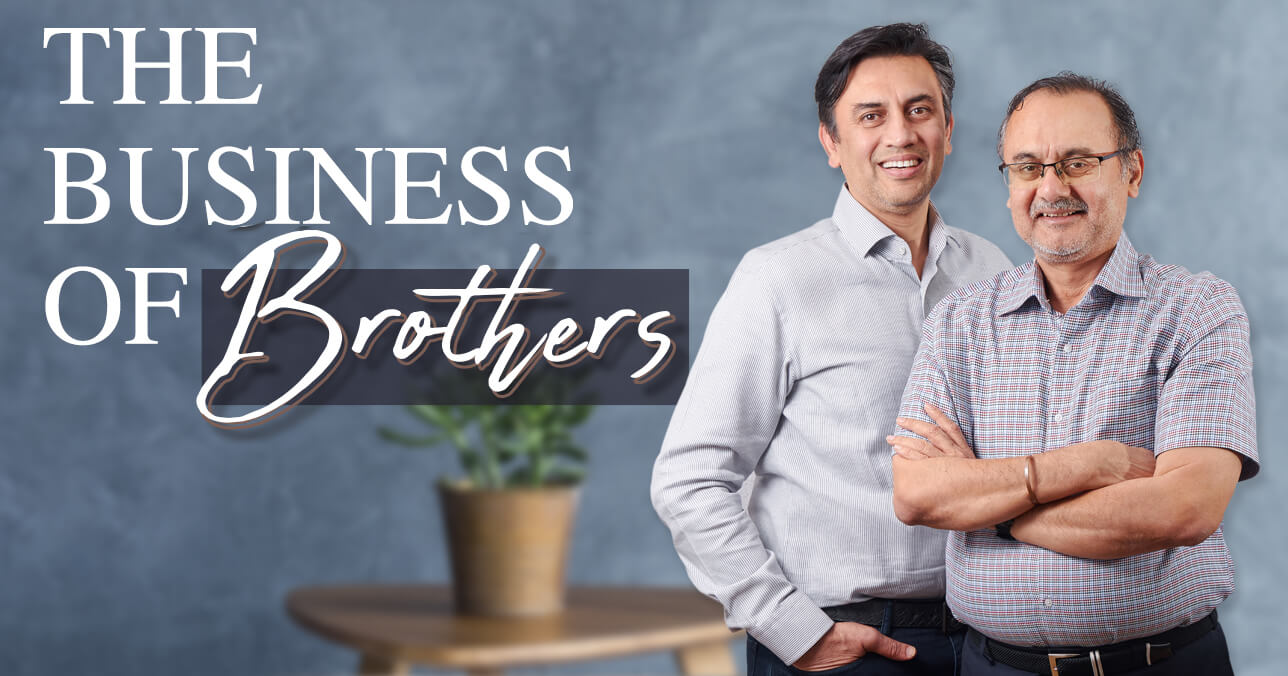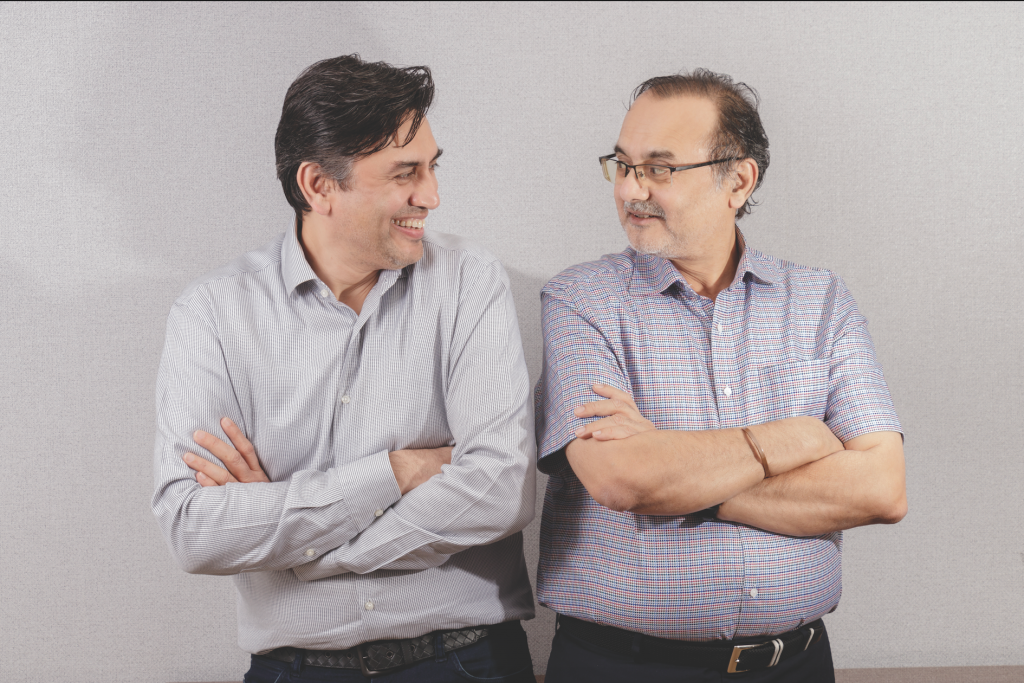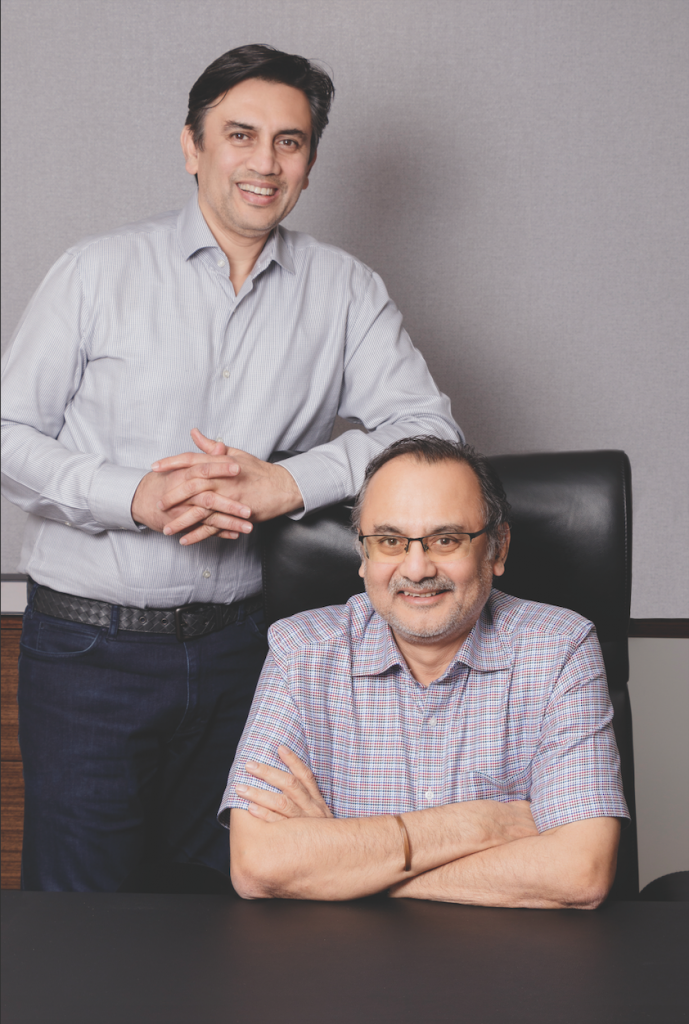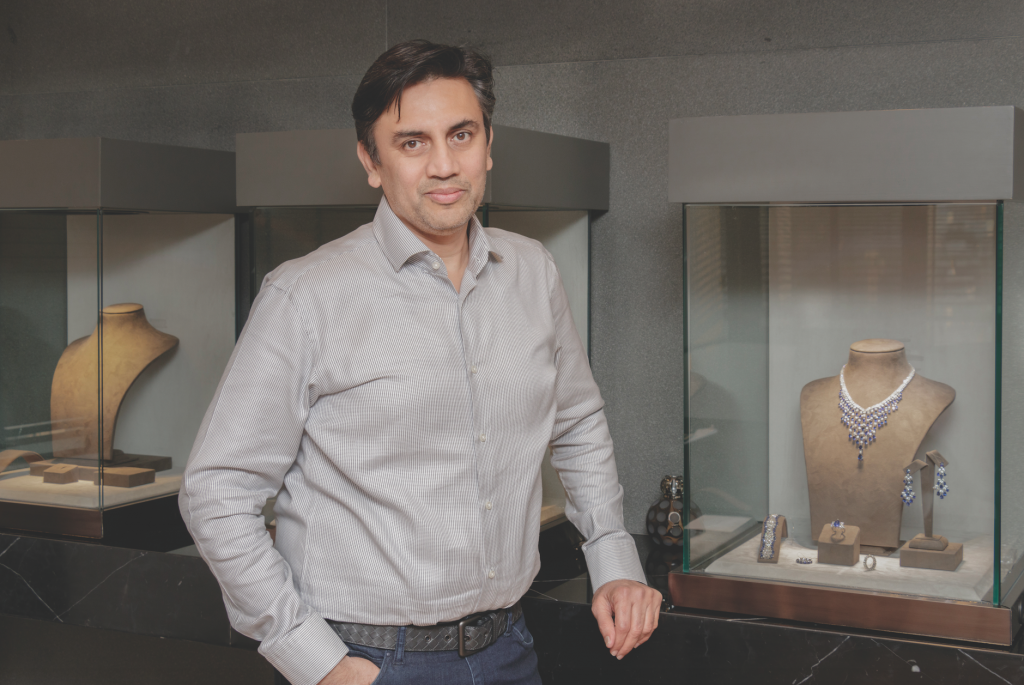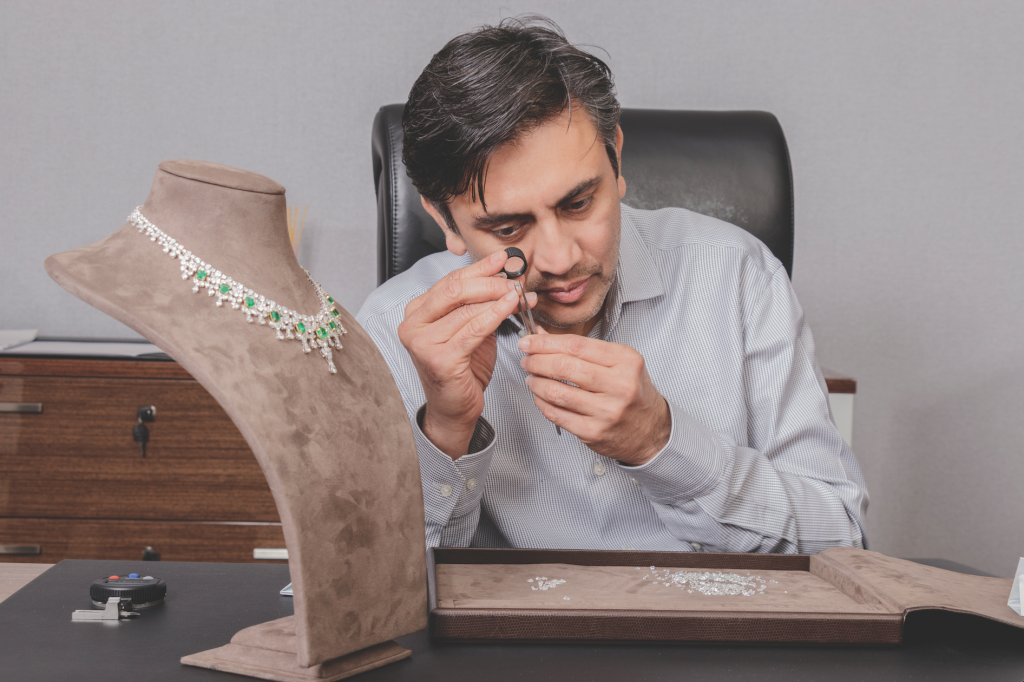Brothers Praveen and Jolly Lodha share their experiences of navigating life as a team.
By Shruti Kothari
Co-founders of the international jewellery firm Prestorise Intertrade Co., Ltd, Praveen and Jolly Lodha, have been sharing their beautiful creations with customers across Southeast Asia for over three decades. From humble beginnings, a combination of fate, optimism, and their dedication to one another has led them down a fulfilling path. Their company oversees the entire process of jewellery-making: sourcing and cutting rough diamonds, polishing the stones to perfection, combining them with precious metals, and showcasing their own designs, as well as offering bespoke options. The Bangkok office, a 75-person operation, is run with a combination of systematic precision and artistry for flawless finished pieces.
As I sit down with them, I see that the keys to their success are in their easy camaraderie, where jokes at each other’s expense are made on a strong foundation of trust, and curiosity, which allows them to constantly learn and evolve with time.
What was growing up together like?
Jolly: We were born in Jaipur, but grew up in Mumbai. We had a lot of fun together. He used to take all the coins from my piggy bank.
Praveen: Pocket money was meagre! Today yes, tomorrow no. Jolly was the parents’ darling, he was always getting coins. The neighbourhood shopwalla used to blare music, whatever was popular in the late 60s, and offer lots of sweets. My friends and I wanted to, you know, support the local economy, but our pockets wouldn’t allow us to, so Jolly was our best option. He didn’t need money anyway, he was too young, and so I would use my mother’s hairpins to collect a few coins, and put them to good use.
Jolly: Just like Robin Hood! As you can see, he was interested in CSR from a young age.
Where did you study?
Jolly: I went to Bhawan’s College Andheri, and graduated in Physics from the University of Bombay.
Praveen: I was in a technical school, so I studied carpentry, foundry, blacksmithing, electrical engineering and so on. After four years, I went to the Indian Institute of Technology (IIT) in Banaras for Mechanical Engineering. I enjoyed life there: I did a lot of mountaineering in the Himalayas, river rafting, boating, jungle adventures, bicycling thousands of kilometres. This of course, was all done with a great paucity of funds—we were on scholarship.
Did you work in other fields before the gemstone trade?
Praveen: Because of my love for the outdoors, I wanted to go into the Forestry Services, but my engineering results came late and the Services would not accept my application without them. So, I stayed in Banaras and taught a few of my friends who had failed the boards. After they passed, I worked at an air conditioning company, estimating heat loads from various hospitals, factories, operation theatres and such, and made proposals for the best systems for them; I learnt how to bid. Then, I went to work as a maintenance engineer at an oil refinery. From there, I went into offshore oil-drilling.
That was one of the most interesting experiences of my life. I drilled many flowing wells, which may still be flowing off the coast of Bombay. It’s a difficult job, drilling from the surface to the seabed; you can’t see anything from the top, it’s all about estimation, technical understanding, analysis and adjustment of the weights. Life there was tough, like being on a military battlefield. We had 12-hour shifts living on the sea. We had to do everything ourselves: drilling, repairing, dealing with complications, and designing our own tools as problems arose.
One morning, at 5am, I had an accident. The whole 22-tonne pipe assembly collapsed, and I pushed my workers out from underneath, but in doing so, my hand got caught. At the age of 25, I lost part of my hand. I was immediately evacuated. I underwent numerous surgeries.
I had no money, and a government job doesn’t help you: the hospital bills are astronomical. But somehow we were able to make ends meet. It was a huge shock for my family; the scion, on whom their hopes rested, had permanently lost his thumb and part of his hand. Those were challenging times. But I got used to the hospital life, and I didn’t want to go back home: I became accustomed to the routine.
I used to lie down under the sheets and listen to a tape recorder my father managed to buy me. I read a lot. I started following the doctor around and observed his other operations. Over time, the anaesthesia they gave me for dressings and minor surgeries stopped putting me to sleep, so I started watching my own surgeries, too. There was so much to learn! In all honesty, oil well drilling was one of my best experiences. So was the accident.
Coming from such science-based fields, how did you decide on the jewellery business?
Praveen: After three months at the hospital, I went to a cousin’s wedding, where my mother was eager to find me a suitable girl. I had a plaster on my hand, but my future wife’s family didn’t seem bothered; our horoscopes matched, and that was that. I got married into a jewellery family. They offered to teach me the ropes, and I became a jeweller.
Jolly: I had just graduated from university, so we started the process together. You wouldn’t believe it, but I have an uncle who is a Mathematics professor, and also really enjoys astrology. He had checked my star charts years before, and told me I would be a jeweller. When the opportunity presented itself, I had that thought at the back of my mind already, so I didn’t question it, I just got started.
What was that journey like?
Jolly: We spent over a year learning skills like assorting on the job. We started offices in Hong Kong and Bangkok, and soon after, we moved to Thailand in 1987. We started with minimal resources, but we built strong systems where we could keep moving forward together. Business prospered, the economy was doing well. We are very grateful to the people around us: the Thai and Southeast Asian jewellery community, and the community at large, helped us firm up our foundations and grow. This is our home now, and we intend to be here until the end.
It’s important to be large-hearted and to listen to each other. There must be space for each person, and information-sharing systems so there is no room for confusion. – Jolly
What is working together like?
Praveen: We had many teething issues! We nearly came to the extent of breaking each other’s teeth!
Jolly: I’ve still got all 32, though.
Praveen: The key to evolution is survival of the fittest. We made sure that each of us was fit enough. If we could survive each other, we could survive the world! They say charity begins at home. In all seriousness, resilience and compromise are the keys. When we don’t agree, we discuss things, and whoever is the most persuasive wins out.
What advice do you have for others working in a family business setting?
Praveen: If you can put aside your personal ego and greed, you’ll be fine. You may not move together at the fastest rate, but the idea is to stay together. You set the pace so that everyone can keep up. You lose out on life by focusing too hard on goals: it’s better to focus on the direction instead, and then to just enjoy the experience.
Jolly: The other thing is that compatibility is conditioned, not inherent. It’s important to be large-hearted and to listen to each other. There must be space for each person, and information-sharing systems so there is no room for confusion.
Do you have advice for people looking to purchase jewellery?
Jolly: Just like you have a family lawyer or doctor, try to have a family jeweller that you trust. Once you have established that confidence, then the rest is about the aesthetic, not the pricing. As the poet John Keats famously said, ‘A thing of beauty is a joy forever.’


